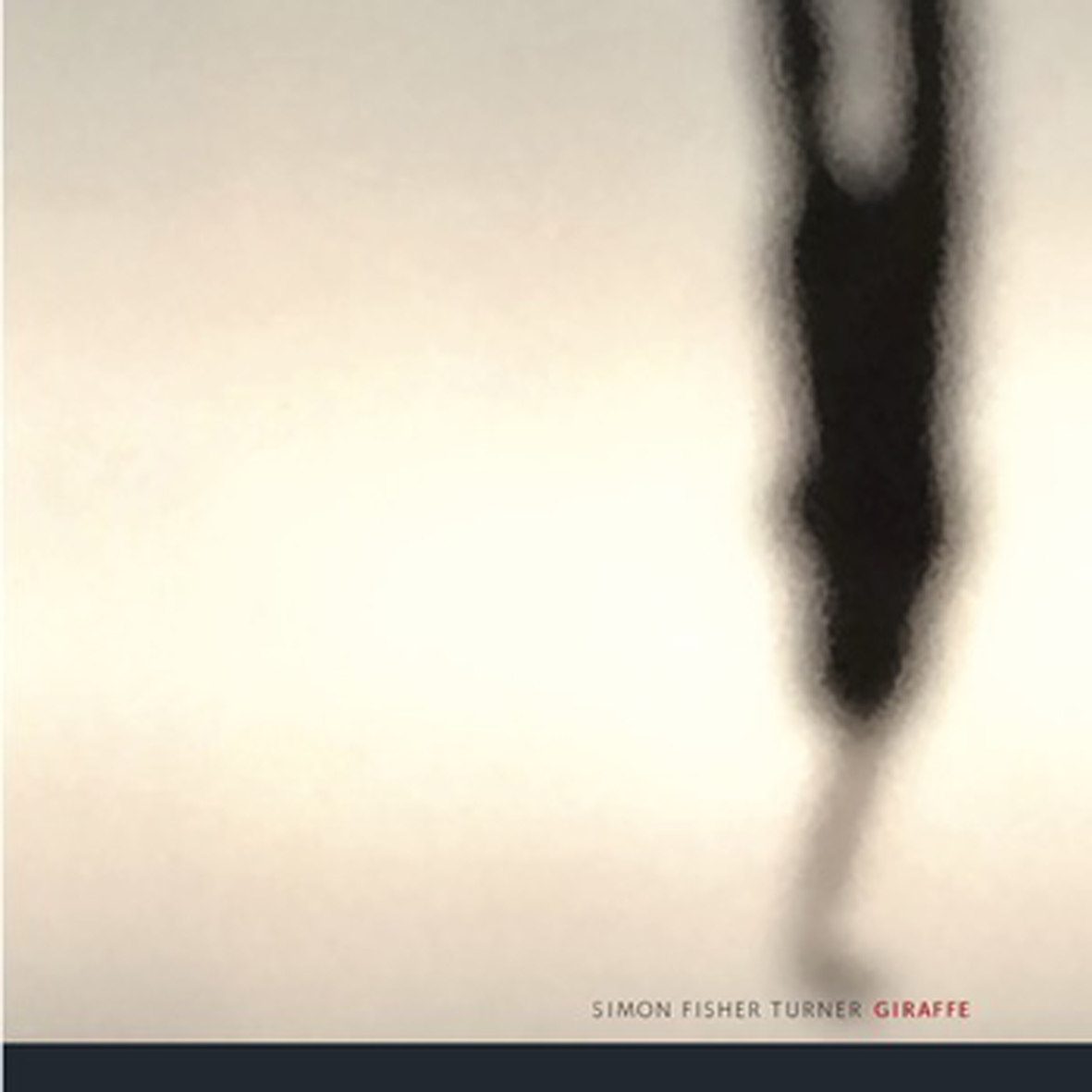Simon Fisher Turner, "Giraffe"
 For his Editions Mego debut, the singular and polymorphously creative Simon Fisher Turner takes a break from his soundtrack career for a feast of smaller and more experimental works.  While the fourteen individual pieces of Giraffe are thematically united by an overarching concept regarding the blending of "life" sounds with music and machines, that concept allows for quite a wide variety of moods and textures.  The clear centerpiece is a gorgeously woozy soundscape ("Slight Smile") featuring a mysterious monologue from Emma Smith that ultimately turns creepily garbled and digitized, but a few other pieces are similarly inspired.  Though many individual pieces err a bit too much on the side of brevity, Giraffe as a whole is quite an absorbing work, languorously flowing from one mysterious and surreal scene to another with occasional unexpected detours into demented chaos, menacing industrial clangor, and lush Romanticism.
For his Editions Mego debut, the singular and polymorphously creative Simon Fisher Turner takes a break from his soundtrack career for a feast of smaller and more experimental works.  While the fourteen individual pieces of Giraffe are thematically united by an overarching concept regarding the blending of "life" sounds with music and machines, that concept allows for quite a wide variety of moods and textures.  The clear centerpiece is a gorgeously woozy soundscape ("Slight Smile") featuring a mysterious monologue from Emma Smith that ultimately turns creepily garbled and digitized, but a few other pieces are similarly inspired.  Though many individual pieces err a bit too much on the side of brevity, Giraffe as a whole is quite an absorbing work, languorously flowing from one mysterious and surreal scene to another with occasional unexpected detours into demented chaos, menacing industrial clangor, and lush Romanticism.
Knowingly or not, Simon Fisher Turner started collecting inspiration and raw material for Giraffe all the way back in 2008, dutifully recording the world around him with an mp3 recorder and his iPhone whenever promising opportunities arose.  Many of the field recordings were taken around venues in England and Japan, but Simon also covered Germany, Spain, and Portugal.  He seems particularly fond of voices and ambient sounds from interiors and other urban spaces.  In a few cases, the recordings are compelling enough to take center stage, such as the quietly singing woman in "Shine Up" or the jabbering meltdown/performance art of "Clean Page," but most of Giraffe’s field recordings are quite cryptic, understated, and textural, primarily serving to provide a vague sense of place rather than a strong central theme.  There are some exceptions though, with the aforementioned and unhinged "Clean Page" being the most significant of all.  Elsewhere, "Burnt In" largely eschews music entirely, featuring a recording of "Mumbai night dogs" by Avjit Mukul Kishore that gradually morphs into something that sounds like a futuristic elevator.  Later on the album, "Mud Larks" takes similarly music-averse stance, resembling a relatively untreated field recording of a reverberant and dripping parking garage with some distant construction.
Simon Fisher Turner is not Chris Watson though, so most of Giraffe's field recordings are merely one minor layer of a composed, melodic work or a somewhat unexpected foray into heavy industrial experimentation.  Given his long background in composing for film, it is not surprising that the bulk of Simon's pieces are incidental ambient works that create a vivid mood.  At its core, Giraffe is essentially a dream-like sequence of mysterious or beautiful "scenes" that leave fleeting emotional impressions.  Sometimes the scene can be quite a conventionally pretty one, like the bleary, gently ringing bliss of "Hope Swims," even if it is disconcertingly curdled by an unexpected power drill near the end.  The warm and ghostly "Clean Page" takes an even more perverse trajectory, as its blurred and heavenly reverie is unnervingly destroyed by the incomprehensible sputtering and grunting of a very agitated man.  Curiously, the album's strongest piece (the gorgeously dream-like "Slight Smile") is one of the only ones that does not feature chance as major component, as it built upon the eerie transformation of a scripted monologue.  Those three pieces, along with the haunting warble of the opener and the bittersweetly orchestral closer, feel like the deliberate set pieces that the rest of Giraffe orbits around, as many of the remainders are too ephemeral and vaporous to leave much of a lingering impact (though the more jarring industrial pieces certainly grab my attention whenever they unexpectedly erupt) .  As sequential stages of Giraffe's alternately beautiful and disorienting hallucinatory spell, those minor/incidental pieces all work just fine, but they generally lack the depth and substance to hold up on their own.
That brings me to the sole grievance that I have with Giraffe: there are plenty of beautiful motifs, intriguing experiments, and evocative moods here, but they rarely stick around long enough to blossom into anything particularly substantial.  As much as I love the wonderful juxtaposition of lush, dreamy drones with feral jabbering in "Clean Page," for example, it is disappointingly over in under three minutes: all the elements of a slow-burning major piece are there, but Giraffe's brisk sequencing pace leaves no time for that.  That seems like an odd move for someone who has made a career out of lengthy and thematically focused soundtrack albums, but it also has a certain logic if I view this release as Simon's vacation from his day job: Giraffe is a varied outpouring of accumulated ideas rather than a rigorous, constrained work commissioned by someone else.  The sole exception to that kaleidoscopic ephemera trend is the gorgeous and mesmerizing 8-minute "Slight Smile," which is more or less an instant classic.  While that one piece is legitimately essential, the rest of Giraffe is merely enjoyable and interesting, though Simon's attention to detail probably makes for a fine headphone album. That is a perfectly respectable achievement, obviously, but this modest cavalcade of curious vignettes amounts to an album that Simon Fisher Turner fans will enjoy rather than the sort of album that would instantly make someone a new Simon Fisher Turner fan.
 



